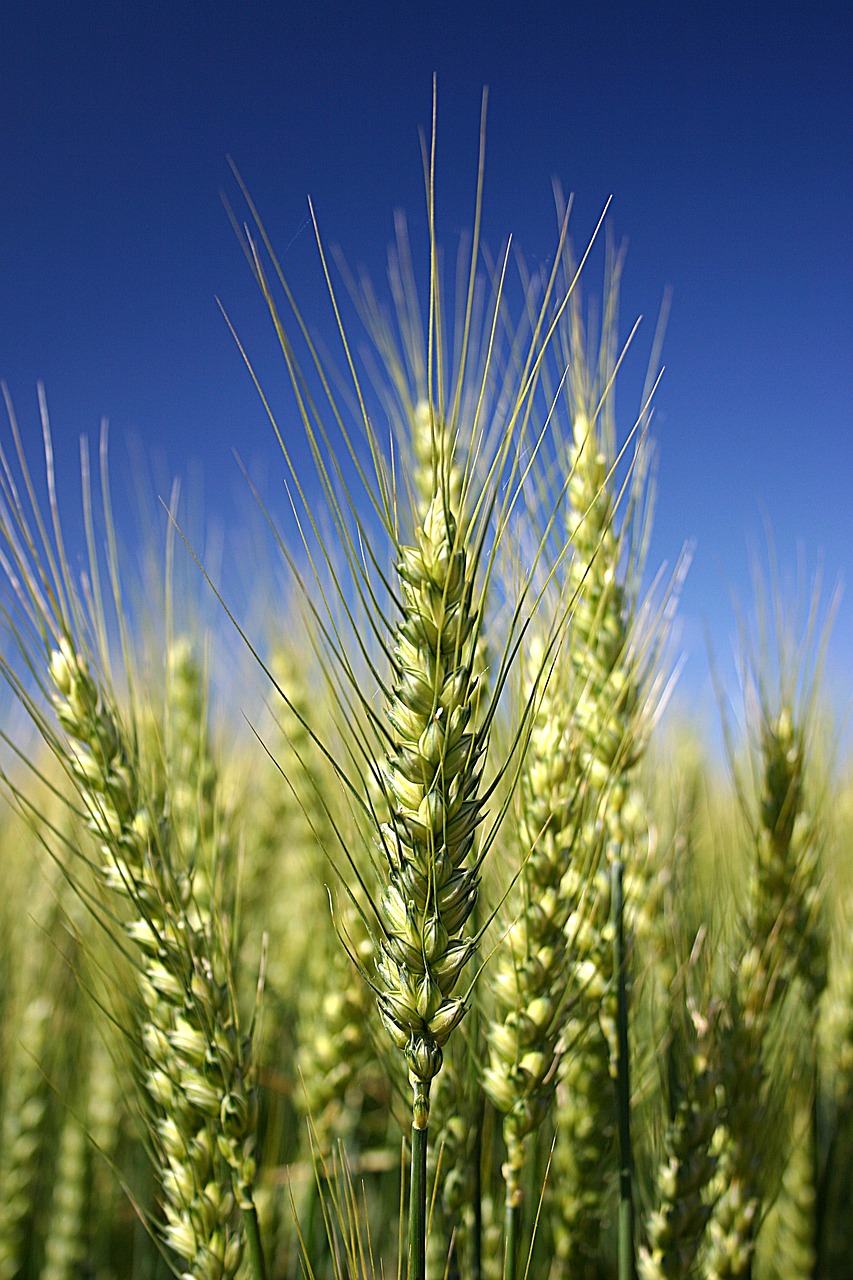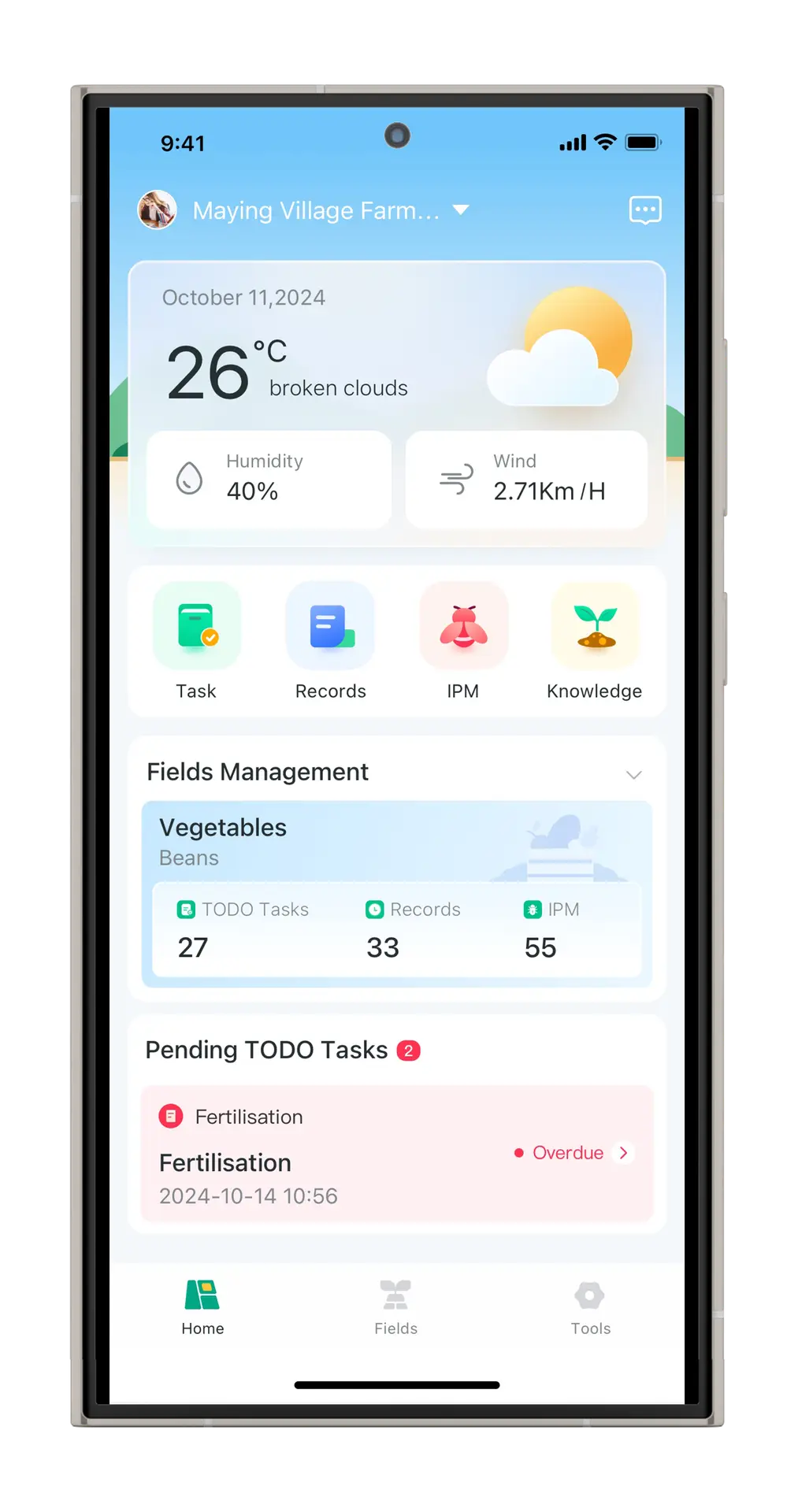Farming future
AI-Enabled Solutions for Sustainable Precision Agriculture
We are experts in sustainable precision agriculture. We specialise in science and technology that leverages AI to deliver reliable data processing and analysis. Our innovative solutions empower farmers to make evidence-based, sustainable decisions that enhance agricultural practices and promote long-term success.
Mutus Tech
Pioneering the Future of Agriculture
Mutus Tech is at the forefront of adopting advanced technologies and algorithms in modern farming. Working closely with farms across diverse regions, we are developing sustainable precision agriculture systems built on cloud-based architectures, IoT, big data and AI.
Our mobile solution integrates highly efficient farming modules that address soil health, fertiliser management, and Integrated Pest Management (IPM)—essential components in shaping the future of farming.
Precision farming
Growing Smarter, Growing Better
AI-Driven Precision in Crop Lifecycle Management
At Mutus Tech, our AI Crop Management System integrates advanced data analytics and AI models to manage every stage of the crop lifecycle with exceptional precision. It provides intelligent decision support, particularly in optimising fertiliser application, minimising environmental impact, and improving crop health and resilience.
By analysing multiple data sources in real time, our AI models generate yield forecasts and deliver actionable insights for smarter, more sustainable farming. The system adapts its recommendations to a wide range of agricultural environments, offering farmers tailored, data-driven guidance to boost productivity and promote environmental sustainability.


Intelligent Fertiliser Management
The global increase in food production has relied heavily on fertilisers. However, their overuse has led to a range of environmental issues, such as soil acidification, groundwater contamination, and increased emissions of ammonia and greenhouse gases (N₂O, CO₂, and CH₄).
Mutus Tech’s AI-driven, climate-smart fertiliser management system seamlessly adapts to diverse farming conditions, from soil quality to regional climates. By harnessing extensive agricultural and environmental data, it powers a mobile-cloud platform for Sustainable Fertiliser Management. This intelligent system improves fertiliser application efficiency, helping to achieve optimal crop yields while minimising environmental impact.

AI-Enhanced Climate Smart IPM Solution
Our climate-smart IPM solution combines adaptive AI with advanced data fusion to provide comprehensive, sustainable pest management. The AI models adapt to local field conditions and pest behaviours, delivering enhanced accuracy in pest detection, population density analysis and threshold monitoring. This approach empowers farmers to make informed, environmentally responsible pest control decisions, supporting ecosystem health and maximising agricultural productivity.
Detection & Identification
Using advanced PestNet models, our system enables rapid pest detection and identification. Lightweight and optimised for mobile devices, it responds to real-time conditions and maintains high accuracy, even in low-resource settings.
Quantification & Analysis
The solution integrates pest thresholds and regional resistance data, offering precise predictions of pest population densities. This approach builds resilience by incorporating regional and climate-related pest behaviours.
Decision Support
By leveraging the latest research on thresholds and regional resistance, the system delivers tailored, context-aware recommendations for pesticide use, optimising the effectiveness and sustainability of pest control practices.
Agricultural Data Archive
Our archive contains over 50,000 labelled images of key crop pests from UK farms, with continuous updates from our ongoing R&D activities. In addition, it holds more than 300,000 historical pest images from Chinese farms, forming a comprehensive data foundation for our AI-driven pest management solutions.
Our data warehouse maintains an extensive, multi-regional archive of over 4,000 soil samples. This dataset captures a range of soil conditions, along with rich contextual information such as environmental factors, crop types and land use. It offers a holistic perspective on soil health dynamics.
Our research includes regional analyses of resistance patterns across 45 commonly used pesticides, with a focus on continuously cultivated crops.
Farm Management
Provides real-time data and intelligent recommendations, enabling farmers to monitor and optimise all aspects of farm operations.
Fertiliser Management
Integrates soil and climate data to generate tailored fertiliser recommendations, promoting crop growth in an efficient and sustainable manner.
IPM
Employs AI-powered pest identification and resistance analysis, allowing farmers to quickly identify and manage pests, enhancing farm resilience.
Practical Tools
Features an AI assistant, real-time pest and disease identification, and a comprehensive agricultural knowledge base. These resources offer expert guidance and timely information to support daily farming decisions.
Core Features
AI IPM
Combines AI-driven insights with real-time pest monitoring to enable precise, environmentally responsible pest control strategies that minimise chemical use.
LLM-powered Decision-Making
Leverages large language models to deliver data-driven decision support, improving the accuracy and efficiency of farm management strategies.
Yield Prediction
Utilises multi-source data fusion and AI analysis to provide accurate crop yield predictions, supporting farm management and market planning.
Pest Detection
Provides a mobile-based solution for rapid, precise identification and quantification of key wheat pests, significantly enhancing crop protection and response efficiency.
Smart Farm Management
Offers a comprehensive, modern platform that integrates farm data to inform decision-making and optimise overall farm operations.
AI Fertiliser Management
Delivers a holistic mobile platform designed for efficient fertiliser application, helping to optimise yields while reducing environmental impact across diverse farming contexts.

